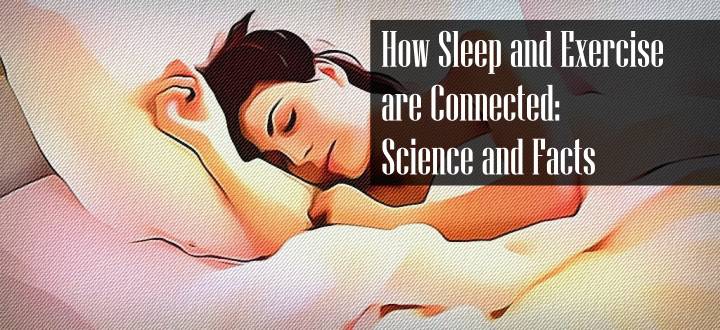It is well-known that sleep and exercise are critical for your physical and emotional health. While it may be difficult to find the time to go to the gym, it is even more challenging to figure out how to get enough sleep.
The truth is: Sleep impacts your workout, and your workout impacts how you sleep. And YOU are in charge of how they should impact one another.
Read on to discover exactly how sleep and workout are connected – and why they both are equally important.
Contents
1. The Importance of Sleep
It’s no surprise that our bodies require sleep to function properly. However, what is surprising is the number of people that don’t get enough regular sleep.
Roughly a third of Americans don’t get enough sleep, and it’s hurting their performance at work and at home. When you’re sleep-deprived, you’re more likely to be moody, have trouble with attention and focus, and have trouble learning new things.
The effects of not getting enough sleep are wide-ranging — from poor school performance to a higher risk of heart disease. Sleep is just as important as diet and exercise, and not getting enough of it can affect your health in multiple ways.
In one night, you go through different sleep cycles. At different times, your body puts all of its energy into different tasks:
- During REM (rapid eye movement) sleep, your brain processes information from the day, helping you learn and remember.
- During deep sleep, your body is working on repairing muscles and bones and keeping your immune system healthy.
- During light sleep, your body releases the stress hormone cortisol.
- And during a period of sleep known as slow-wave sleep, your body releases human growth hormone, which helps your muscles and bones grow.
2. How You Can Improve Your Life With Better Sleep
The quality of sleep you get affects the quality of your life.
Mastering the art of sleep can mean being able to perform at your best, whether that’s at work, at home, or in your hobbies and interests.
So what does it mean to master the art of sleep?
It means taking control of the time you devote to sleep and finding the right path for you. It means setting a bedtime routine, creating a comfortable sleep environment, and understanding how to use the time you spend sleeping for the best.
Studies have shown that good sleep can increase your memory, improve your mood, lower stress, and improve control of your weight. It is very important to get at least seven hours of sleep each night. Drink less coffee, close your laptop and try to focus on the task at hand.
You will feel more confident and relaxed.
3. How Working Out Can Help You Get The Sleep You Need
Working out has a ton of benefits that go beyond being physically attractive.
For example, exercising can help you focus, relieve stress, and even help you get a better night’s sleep.
In fact, a Harvard Medical School study published in the journal of sleep found that people who exercise before bed have higher quality sleep and longer “sleep duration.”
While working out can help you get a better night’s sleep, improving your sleep habits can also help you start a workout routine.
Studies have shown that getting enough sleep increases your alertness, improves your mood, and helps with concentration.
Working out helps your body produce the feel-good chemical serotonin, enabling you to sleep better at night. Exercise also releases norepinephrine, which helps control your body temperature, making it easier to fall asleep. And, it helps you fall asleep faster, as well as makes you sleep longer and more soundly.
Finally, exercise boosts your energy, which helps you make it through the day.
4. How Sleep and Workout are Connected
We all know how hard it is to get a full night’s sleep.
Work, family, and life, in general, can disrupt our sleep patterns – keeping us up at all hours of the night.
But have you ever stopped to consider that your lack of sleep could be putting your health at risk? There’s a correlation between sleep and exercise, and not getting enough of either can have some pretty unfortunate side effects.
If you are sleep-deprived, your body will start to break down.
When you don’t get a full night’s rest, you will start to feel fatigued. Fatigue can result in lower energy levels, poor performance – and even accidents. Yikes!
If you are running on empty, you are more likely to end up sick, which can keep you from both work and exercise. If you are exercising but not getting enough sleep, your body won’t have time to recover. As a result, you will be sore and more prone to injury. In fact, sleep-deprived athletes are at a higher risk for injury and burnout.
So:
Pay attention to your sleep pattern and ensure you are getting enough of it. If you’re feeling run down, take a day off or take a nap. You will be better off in the long run.
Final Words
I hope this blog post has given you some new insight into how sleep and workout are related.
If you have any other questions or concerns about how your workout routine can affect your sleep, please contact me anytime. There are so many different ways to get in a great workout, so if you feel unmotivated, I would love to help you find something that works for you!
Thank you for reading; I’m always excited when one of my posts can provide useful information on an important topic like this.


